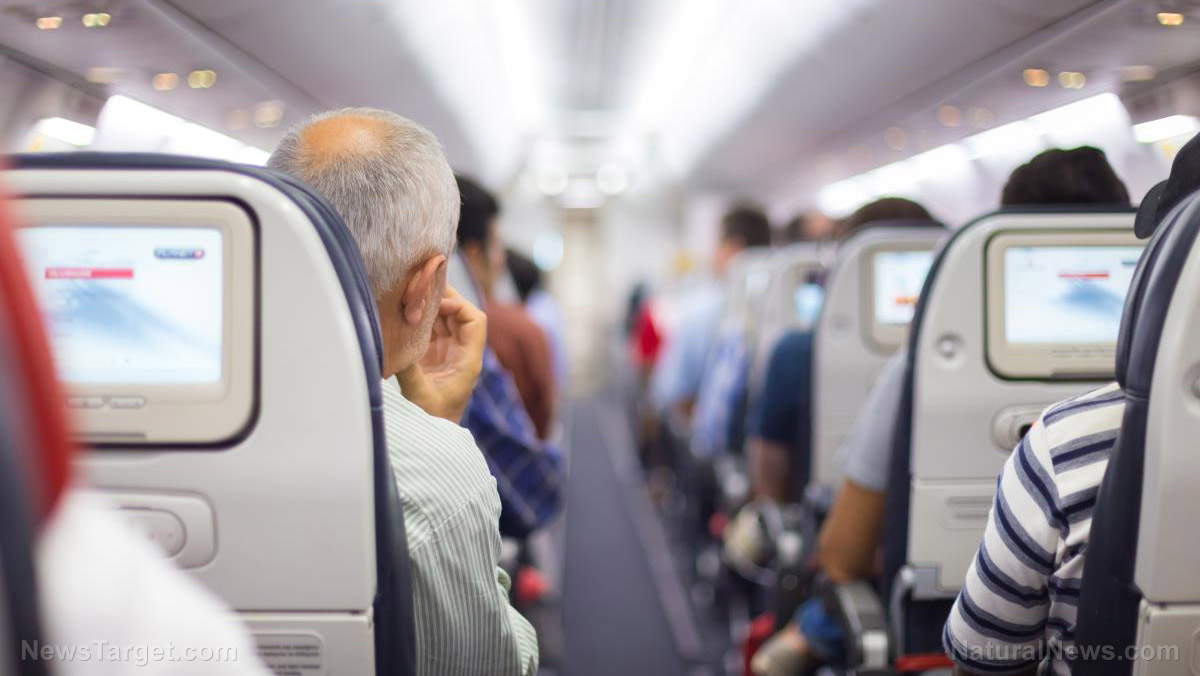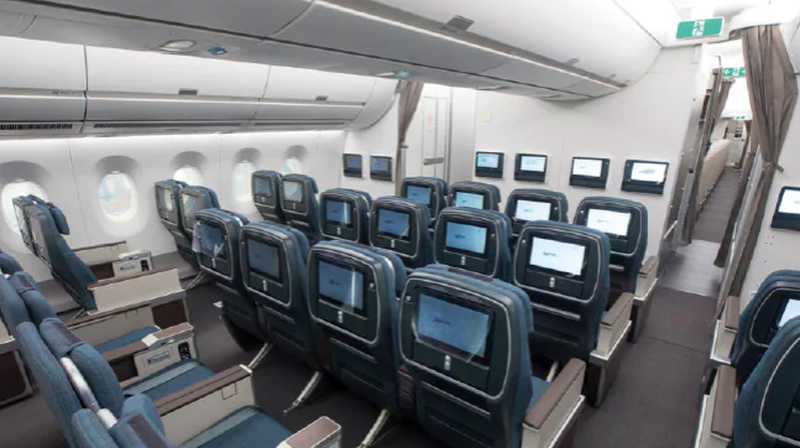Cameras installed in airline seats now surreptitiously record you during every flight, then store the video files indefinitely
08/18/2019 / By Lance D Johnson

If being subjected to radiation and groped at the airport wasn’t enough, now airline passengers will be monitored in their seats by CCTV cameras that can randomly take pictures of you, watch you eat, and pick your nose. In Hong Kong, individual camera screens are being installed in every headrest, glaring at each passenger.
Hong-Kong based Cathay Pacific has installed “entertainment screens” in the back of every airline seat. These screens are equipped with cameras that can surreptitiously monitor every passenger’s movements and personal preferences. The only place where cameras aren’t installed – the airline reassures – is in the bathrooms.
Airline to intimately monitor each passenger to “fulfill business needs”
Cathay Pacific implemented the new policy so they can exploit your behaviors, your personal preferences, and analyze your feedback to improve their marketing and sales. The airline said they may store the data indefinitely or “as long as necessary.” The data they collect on passengers includes “information such as previous travel arrangements, feedback about your experiences, details of lost luggage and other claims, your use of our in-flight entertainment system and in-flight connectivity, your images captured via CCTV in our airport lounges and aircraft.”
The images will be used to build a detailed database on every passenger. Everything a passenger does at the airport and every program they watch on the plane will be analyzed. Everything they ask for will be scrutinized. Every facial feature and expression will also be analyzed, providing a psychological profile on every passenger. In this way, authorities can predict future behavior and marketers can best exploit passenger’s needs and wants.
In an interview Sun Online Travel, a Cathay Pacific spokesperson said, “We will retain the personal data as long as is necessary to fulfill business needs.”
No guarantee personal information will be kept secure
In their new policy, Cathay Pacific reassures that they will do the best they can to make sure personal information is kept secure, but they admit, “no data transmission over the internet … can be guaranteed to be secure from intrusion.” In fact, Cathay Pacific suffered a major data breach in 2018, losing personal information on 9.4 million passengers. That information included identity cards and passport numbers.
If hacking wasn’t a big enough problem already, the airline also admits that all the personal information they collect can be shared with “third party partners for marketing purposes.” Of course, many people will enjoy being exploited over time, as their photos and behaviors are analyzed to “personalize their experience.” The entertainment devices can be used to make video calls in-between seats and to contact the flight crew. Still, many passengers are not comfortable with big brother staring them in the face during the flight and monitoring their every move.
Cathay Pacific isn’t the only airline to roll out individual in-flight cameras for every seat. United Airlines, Delta, American Airlines and Singapore Airlines have all rolled out their own version of mid-flight surveillance in the past year. The devices, equipped with cameras, have come under scrutiny from passengers. The airlines were eventually forced to cover up the cameras to “reassure customers” that they weren’t being exploited 24-7.
Still, it appears that airlines are becoming much like Facebook, Google Android devices, and spy machines like Amazon Alexa. They are mining your personal data and behaviors to create a psychological profile on you so they can manipulate you into being a good little consumer or an obedient subject of an ever-encroaching police state.
For more on this topic, check out PrivacyWatch.News.

Photo credit: Zerohedge.com
Sources include:
Tagged Under: airline security, authoritarian, behavior modification, Big Brother, consumerism, data analysis, data breach, data mining, hacking, personal data, police state, privacy, privacy watch, spying, surveillance
RECENT NEWS & ARTICLES
COPYRIGHT © 2017 THOUGHTPOLICE.NEWS
All content posted on this site is protected under Free Speech. ThoughtPolice.news is not responsible for content written by contributing authors. The information on this site is provided for educational and entertainment purposes only. It is not intended as a substitute for professional advice of any kind. ThoughtPolice.news assumes no responsibility for the use or misuse of this material. All trademarks, registered trademarks and service marks mentioned on this site are the property of their respective owners.



















